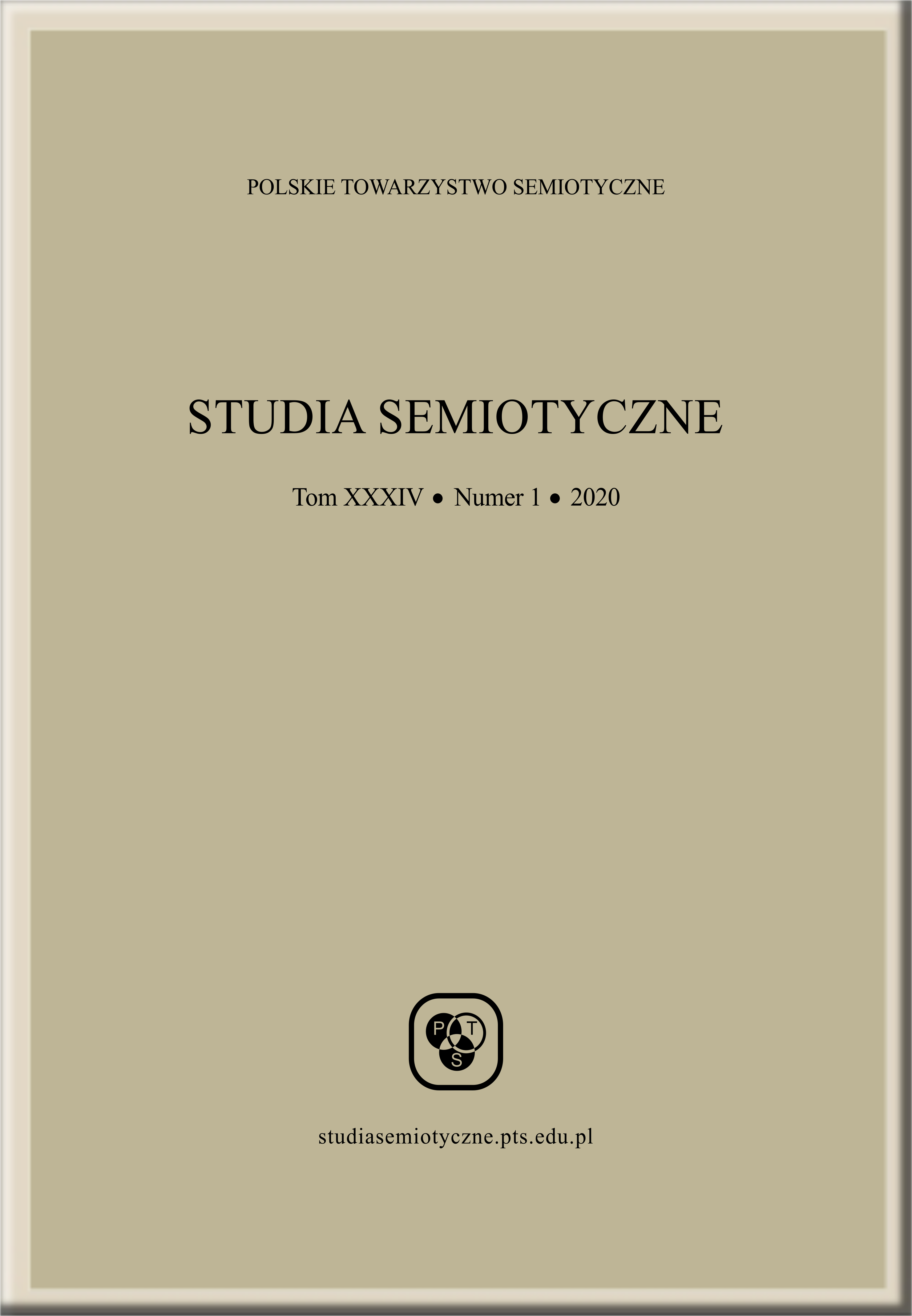Abstract
DOI: http://doi.org/10.26333/sts.xxxiv1.05
We show that the name “Lucas-Penrose thesis” encompasses several different theses. All these theses refer to extremely vague concepts, and so are either practically meaningless, or obviously false. The arguments for the various theses, in turn, are based on confusions with regard to the meaning(s) of these vague notions, and on unjustified hidden assumptions concerning them. All these observations are true also for all interesting versions of the much weaker (and by far more widely accepted) thesis known as “Gö- del disjunction”. Our main conclusions are that pure mathematical theorems cannot decide alone any question which is not purely mathematical, and that an argument that cannot be fully formalized cannot be taken as a mathematical proof.
References
Avron, A. (2020). Why Predicative Sets? In A. Blass, P. Cégielski, N. Dershowitz, M. Droste, B. Finkbeiner (Eds.), Fields of Logic and Computation III, Eassys Dedicated to Yuri Gurevich on the Occasion of His 80th Birthday (pp. 30–45). Springer.
Baaz, M., Papadimitriou, C. H., Putnam, H. W., Scott, D. S., & Harper, C. L. (Eds.). (2011). Kurt Gödel and the Foundations of Mathematics: Horizons of Truth. Cambridge: Cambridge University Press.
Boolos, G. (1995). Introductory Note to Kurt Gödel’s “Some Basic Theorems on the Foundations of Mathematics and Their Implications”. In S. Feferman et al. (Eds), Collected Works, Volume III: Unpublished Essays and Lectures (pp. 290–304). Oxford: Oxford University Press.
Charlesworth, A. (2016). A Theorem about Computationalism and “Absolute” Truth. Minds and Machines, 26, 206–226.
Davis, M. (1990). Is Mathematical Insight Algorithmic? Behavioral and Brain Sciences, 13, 659–660.
Ewald, W. (1996). From Kant to Hilbert. London: Clarendon Press.
Feferman, S. (1962). Transfinite Recursive Progressions of Axiomatic Theories. Journal of Symbolic Logic, 27, 259–316.
Feferman, S. (1964). Systems of Predicative Analysis I. Journal of Symbolic Logic, 29, 1–30.
Feferman, S. (1998). In the Light of Logic. Oxford: Oxford University Press.
Feferman, S. (2005). Predicativity. In S. Shapiro (Ed.), The Oxford Handbook of the Philosophy of Mathematics and Logic (pp. 590–624). Oxford: Oxford University Press.
Feferman, S. (2006). Are There Absolutely Unsolvable Problems? Gödel’s Dichotomy. Philosophia Mathematica, 14, 134–152.
Feferman, S. (2009). Gödel, Nagel, Minds, and Machines. Journal of Philosophy, 106, 201–219.
Franzén, T. (2005). Gödel’s Theorem: An Incomplete Guide to Its Use and Abuse. Wellesley: A.K. Peters.
Gödel, K. (1946). Remarks Before the Princeton Bicentennial Conference on Problems in Mathematics. In S. Feferman et al. (Eds.), Collected Works, Volume II: Publications 1938–1974 (pp. 150–153). Oxford: Oxford University Press.
Gödel, K. (1951). Some Basic Theorems on the Foundations of Mathematics and their Implications. In S. Feferman et al. (Eds), Collected Works, Volume III: Unpublished Essays and Lectures (pp. 304–323). Oxford: Oxford University Press, 1951.
Gödel, K. (1990). Collected Works, Volume II: Publications 1938–1974. Oxford: Oxford University Press.
Gödel, K. (1995). Collected Works, Volume III: Unpublished Essays and Lectures. Oxford: Oxford University Press.
Koellner, P. (2016). Gödel’s Disjunction. In L. Horsten & P. Welch (Eds.), Gödel’s Disjunction: The Scope and Limits of Mathematical Knowledge (pp. 148–188). Oxford: Oxford university Press.
Koellner, P. (2018a). On the Question of Whether the Mind Can Be Mechanized, I: From Gödel to Penrose. Journal of Philosophy, 115, 337–360.
Koellner, P. (2018b). On the Question of Whether the Mind Can Be Mechanized, II: Penrose’s New Argument. Journal of Philosophy, 115, 453–484.
Krajewski, S. (2020). On the Anti-Mechanist Arguments Based on Gödel Theorem. Studia Semiotyczne, 34(1), 9–56.
Horsten, L., & Welch, P. (Eds.). (2016a). Gödel’s Disjunction: The Scope and Limits of Mathematical Knowledge. Oxford: Oxford university Press.
Horsten, L., & Welch, P. (2016b). Introduction. In L. Horsten & P. Welch (Eds.), Gödel’s Disjunction: The Scope and Limits of Mathematical Knowledge (pp. 1–15). Oxford: Oxford University Press.
LaForte, G., Hayes, P. J., & Ford, K. M. (1998). Why Gödel’s Theorem Cannot Refute Computationalism. Artificial Intelligence, 104, 265–286.
Lucas, J. R. (1961). Minds, Machines and Gödel. Philosophy, 36, 112–137.
Penrose, R. (1989). The Emperor’s New Mind: Concerning Computers, Minds, and the Laws of Physics. Oxford: Oxford University Press.
Penrose, R. (1994). Shadows of the Mind: A Search for the Missing Science of Consciousness. Oxford: Oxford University Press.
Penrose, R. (2011). Gödel, the Mind, and the Laws of Physics. In M. Baaz et al. (Eds.), Kurt Gödel and the Foundations of Mathematics: Horizons of Truth (pp. 339–358). Cambridge: Cambridge University Press.
Poincaré, H. (1906). Les Mathématiques et la Logique, II, III. Revue de Métaphysique et Morale, 14, 17–34, 294–317.
Poincaré, H. (1909). La Logique de l’infini. Revue de Métaphysique et Morale, 17, 461–482.
Richard, J. (1905). Les Principes des Mathematiques et les Problémes des Ensembles. Revue general des sciences pures et appliqués, 16, 541–543.
Putnam, H. W. (2011). Gödel Theorem and Human Nature. In M. Baaz et al. (Eds.), Kurt Gödel and the Foundations of Mathematics: Horizons of Truth (pp. 325–338). Cambridge: Cambridge University Press.
Schütte, K. (1965). Predicative Well-Ordering. In J. Crossley and M. Dummett (Eds.), Formal Systems and Recursive Functions (pp. 279–302). Oxford: North-Holland.
Shapiro, S. (1998). Incompleteness, Mechanism, and Optimism. Bulletin of Symbolic Logic, 4, 273–302.
Shapiro, S. (2016). Idealization, Mechanism, and Knowability. In L. Horsten & P. Welch (Eds.), Gödel’s Disjunction: The Scope and Limits of Mathematical Knowledge (pp. 189–207). Oxford: Oxford university Press.
Wang, H. (1996). A Logical Journey. Cambridge: The MIT Press.
Weyl, H. (1918). Das Kontinuum: Kritische Untersuchungen über die Grundlagen der Analysis. Leipzig: Veit.
Weyl, H. (1987). The Continuum: A Critical Examination of the Foundation of Analysis. Kirksville, Missouri: Thomas Jefferson University Press.
Williamson, T. (2016). Absolute Provability and Safe Knowledge of Axioms. L. Horsten & P. Welch (Eds.), Gödel’s Disjunction: The Scope and Limits of Mathematical Knowledge (pp. 243–253). Oxford: Oxford University Press.
Ye, F. (2011). Strict Finitism and the Logic of Mathematical Applications. New York: Springer.


